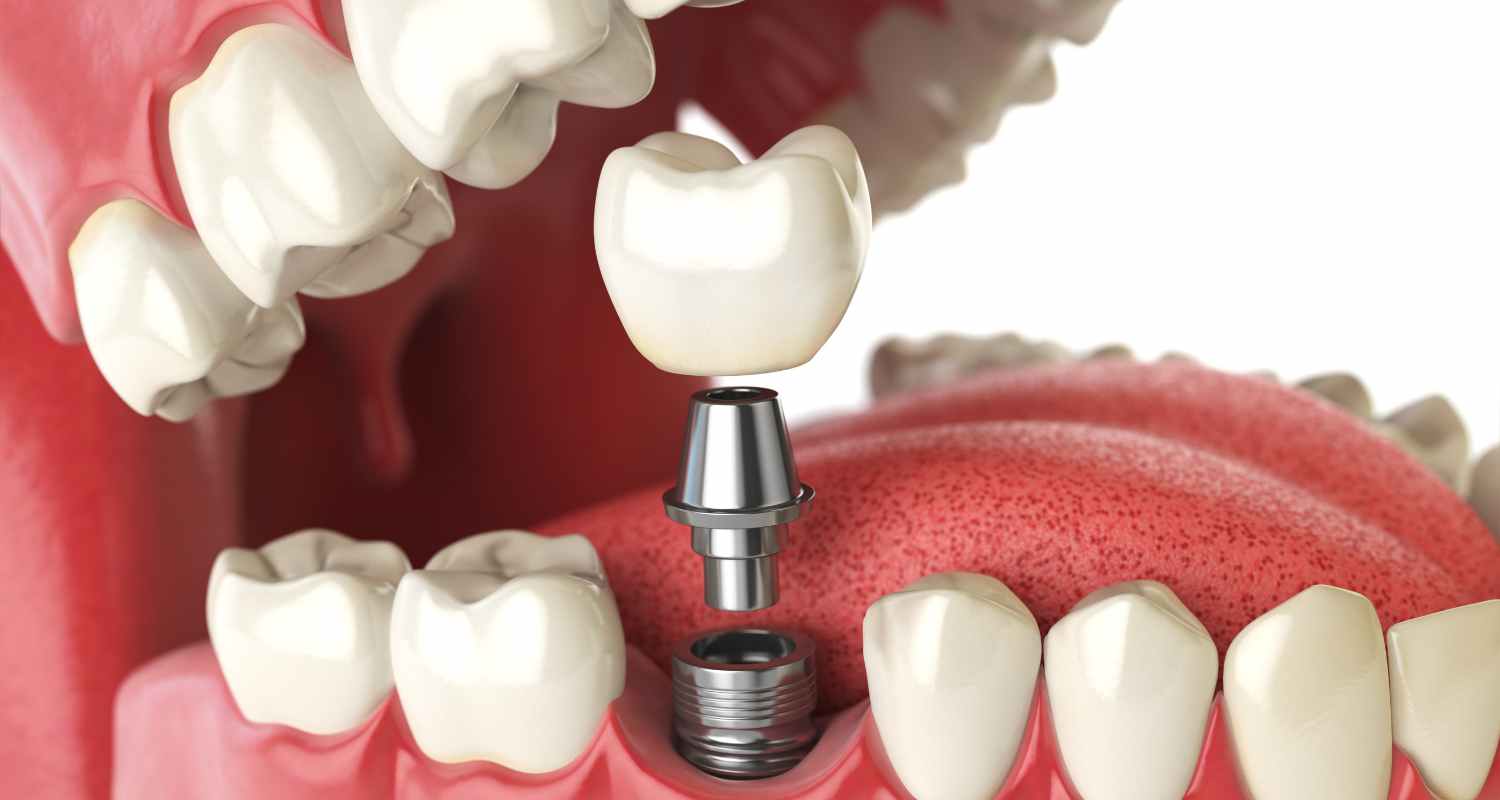Missing teeth can impact more than just your smile. They can affect your ability to chew, speak clearly, and even feel confident. Fortunately, dental implants offer a long-lasting, natural-looking solution that has revolutionized restorative dentistry. Let’s delve into the science behind dental implants, exploring how they work, their benefits, and why they’re considered a leading option for replacing missing teeth.
What are Dental Implants?
Dental implants are small, titanium posts that act as artificial tooth roots. They are surgically placed into the jawbone,where they fuse with the bone through a process called osseointegration. This creates a stable foundation for supporting replacement teeth, such as crowns, bridges, or dentures.
The Science of Osseointegration: A Remarkable Biological Process
Osseointegration is the key to the success of dental implants. It’s a remarkable biological process in which the titanium implant integrates with the surrounding jawbone, forming a strong and permanent bond. Here’s how it works:
- Placement: The implant is surgically placed into the jawbone.
- Healing: Over several months, the bone grows around the implant, anchoring it securely in place.
- Fusion: The titanium surface of the implant promotes bone growth and adhesion, creating a strong and stable connection.
Why Titanium? A Biocompatible Wonder
Titanium is the material of choice for dental implants due to its unique properties:
- Biocompatibility: Titanium is highly biocompatible, meaning it’s well-tolerated by the body and doesn’t trigger an immune response.
- Strength and Durability: Titanium is incredibly strong and durable, able to withstand the forces of chewing.
- Osseointegration: The unique surface properties of titanium promote bone growth and integration.
The Benefits of Dental Implants: A Multitude of Advantages
- Natural Look and Feel:Dental implants look and feel like natural teeth. They are custom-made to match the color and shape of your surrounding teeth, providing a seamless and aesthetically pleasing result.
- Improved Functionality:Implants function like natural teeth, allowing you to chew, speak, and smile with confidence. They restore your ability to enjoy your favorite foods and participate in social activities without worry.
- Enhanced Oral Health:Unlike bridges, which require altering adjacent teeth, implants stand alone and don’t compromise the health of neighboring teeth. They also help preserve jawbone density and prevent bone loss that can occur after tooth loss.
- Long-Term Solution:With proper care, dental implants can last a lifetime, making them a cost-effective investment in your oral healthand well-being.
- Improved Self-Esteem:Missing teeth can affect your self-confidence and social interactions. Dental implants restore your smile and boost your self-esteem, allowing you to feel more comfortable and confident in your appearance.
The Dental Implant Procedure: A Multi-Step Process
- Consultation and Planning:Your dentist will conduct a comprehensive examination, including X-rays and 3D imaging, to assess your oral health and determine if you’re a suitable candidate for dental implants.
- Implant Placement:The implant is surgically placed into the jawbone. This is typically an outpatient procedure performed under local anesthesia.
- Healing and Osseointegration:A healing period of several months is necessary for osseointegration to occur. During this time, the implant fuses with the jawbone, creating a stable foundation.
- Abutment Placement:Once osseointegration is complete, an abutment, a small connector piece, is attached to the implant.
- Restoration:A custom-made crown, bridge, or denture is attached to the abutment, completing the restoration.
Are Dental Implants Right for You?
Dental implants are a suitable option for most people in good overall health who have lost one or more teeth. However, certain factors may affect candidacy, including:
- Sufficient Jawbone Density: Adequate bone density is necessary to support the implant.
- Overall Health: Certain medical conditions, such as uncontrolled diabetes or gum disease, may affect the success of implants.
- Oral Hygiene: Good oral hygiene habits are essential for maintaining the health of implants.
Caring for Your Dental Implants: Maintaining a Lifelong Investment
Dental implants require the same care as natural teeth:
- Brush Twice a Day: Use a soft-bristled toothbrush and fluoride toothpaste.
- Floss Daily: Floss around the implant and between other teeth to remove plaque and food particles.
- Regular Dental Checkups: Visit your dentist for regular checkups and professional cleanings to monitor the health of your implants.
Dental Implants: A Wise Investment in Your Smile
Dental implants offer a remarkable solution for replacing missing teeth, restoring both function and aesthetics. By understanding the science behind osseointegration, the benefits of titanium, and the importance of proper care, you can make an informed decision about whether dental implants are the right choice for you. Consult your dentist to discuss your individual needs and embark on the journey to a confident, healthy, and long-lasting smile.
If you have any questions or concerns, please contact us. Or if you’d like to visit our dental clinic, please find us on Google Maps.


